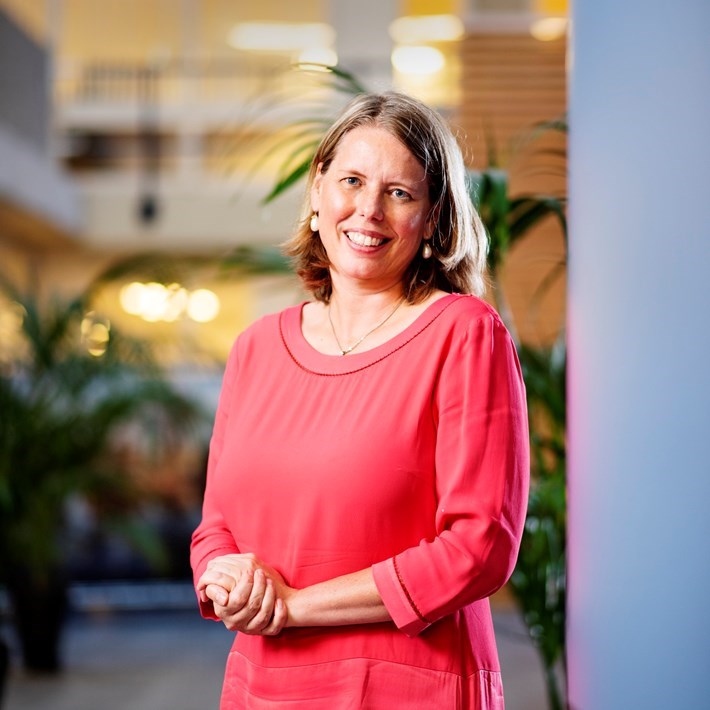'We have everything it takes to be the city of innovative therapies'
&width=710&height=710)
You've been working in your new position for several months now. How do you look back?
“Very positive. I walk into LUMC every day with pride and good energy. Over the past few months I have spoken to many people in the organization and heard the ambitions of many departments. It is important to keep in touch with what is going on in the organization. Conversely, I also feel the need in the organization for the involvement of the Executive Board. That ambition is on both sides and that feels good. There are a tremendous number of professionals working here who are committed every day to providing the best for patients, but also for research and education. I feel the enormous commitment of all employees. LUMC also offers really unique opportunities. We have a very good starting point as an innovator.
Do you have an example of a unique opportunity?
“That is mainly in the Leiden Bio Science Park of which we are part. But also in the cooperation with the Health Campus in The Hague and our regional, national and international partners. The available knowledge we share here leads to results that can make a difference for innovation within healthcare and health in general. We want to further strengthen the results of research in society. At the same time, we are committed to training doctors of today and tomorrow. Working together in networks is the key to tackling societal challenges. Leiden has everything it needs to be the city of innovative therapies. That realization may well sink in a bit better and we may also carry that pride out more.”
You also want to improve research support and collaboration. In what ways?
“Researchers should be supported in the best possible way. In this regard, it helps to bring different parts of research support under one management, in order to anchor mutual cooperation more firmly. We are also looking at leadership and a different way of recognizing and valuing than, for example, the number of publications, which is still too often the only criterion. There are programs within LUMC aimed at this, for example under the name Academia in Motion.”
“For the PhD students, we have also made many steps. For example, there is now a guidance committee that helps shape supervision with advice and assistance. In addition, PhD students have more say in their own research trajectory. We also have open and closed sessions with interest groups in LUMC, so that we shape the future together. We will definitely continue with this. We learn an enormous amount from the different groups of people who work here. That way we can offer even better guidance and an even better working environment.”
The government has announced cuts in education and research. How does that play into the plans we want LUMC to move toward?
“We find the cuts incredibly unwise and it remains very important to invest in research and education. We are pulling together with other parties to get the cuts off the table. Our main task is that we still continue to innovate and keep going. It will certainly have an impact, so we have to discuss very carefully with each other that we get through this with as little damage as possible. And at the same time keep looking to the future.”
What are important goals for education and how is the collaboration with the vice dean University Education?
“The vice dean Alexandra Langers is responsible for university education but we work very closely together. It is really nice to be able to consult with our teams about which way we are going. An important goal for education is that we learn even more with each other, beyond the boundaries of our own fields. At the same time, we continuously adapt our education to social developments, such as more focus on planetary health, but also artificial intelligence. The knowledge and skills for the future, that is what we are responsible for.”
You just gave some examples about the culture changes. LUMC has a special Future@Work program for this. What contribution can you make to this from your role?
“A very big one. I do my best every day, wherever possible, to show that we (the Executive Board) consider the Future@Work program important and support it. We do that not only by talking about it, but especially by showing it. Our core values: personal, connecting, curious and equal, on which the code of conduct is based, provide good guidance for this.
It's a busy job, how do you keep a work-life balance?
“I also try to put things into perspective from time to time. Of course we try to accomplish as much as possible, but not everything can be done in one day. It also takes time to take steps. I especially like the fact that we work with very good teams from which I experience a lot of support. That motivates me enormously. In addition, I can take a good distance at home and take time for my family and friends.”
